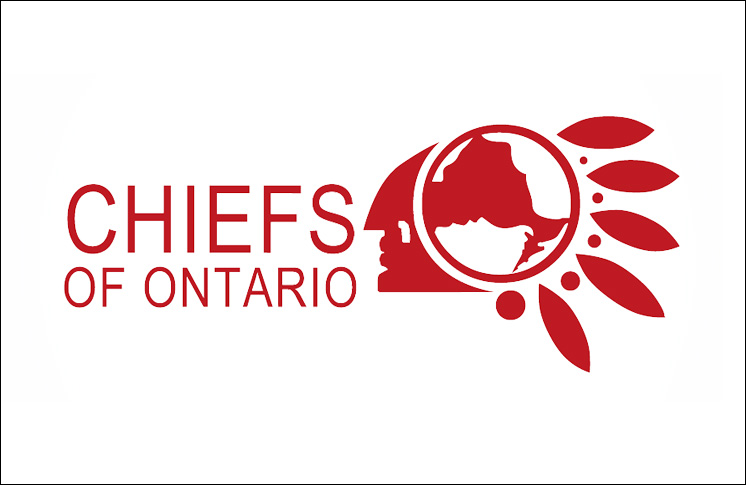After national association rejects initial arrangement
OTTAWA—The Chiefs of Ontario (COO) and the Nishnawbe Aski Nation will be negotiating child welfare reforms with the federal government weeks after the Assembly of First Nations (AFN) rejected the deal previously, feeling it was too weak to accept. The federal government has indicated that they cannot renegotiate reforms on a national level.
“Ontario First Nations are in a position that we want to negotiate our own agreement,” said Patsy Corbiere, chief of Aundeck Omni Kaning First Nation (AOK) and Tribal Chair of the United Chiefs and Councils of Mnidoo Mnising told The Expositor last week.
Chief Corbiere said the AFN has twice rejected an initial deal of $47.8 billion between Canada, the COO, Nishnawbe Aski Nation and the AFN in July after a nearly two-decades long legal fight over the federal government’s underfunding of on-reserve child welfare services.
“The AFN chiefs voted twice against the negotiated deal,” said Chief Corbiere, “but Ontario chiefs voted in favour of it.”
“I’m not sure what the rest of the chiefs thought they were going to get out of the government by rejecting this offer,” said Chief Corbiere. “As chiefs we need to put children in our community first.”
“You won’t get a better deal than the one that was negotiated, agreed to and offered by the federal government,” said Chief Corbiere. “It was wordsmithing that the chiefs who rejected it wanted to change.”
The COO, the Nishnawbe Aski Nation and the federal government say the reforms outlined in a draft child welfare agreement ‘are historic and transformative.’ They have indicated that they will work with Canada to reach a final agreement within the existing provisions. The agreement, $47.8 billion over 10 years, was ordered by the Canadian Human Rights Tribunal (CHRT) after a nearly two-decades long legal fight over the government’s underfunding of on-reserve child welfare services. The CHRT said this was discriminatory as it meant that kids living on reserve were provided fewer services than those living off-reserve. The agreement was designed to have First Nations provided the funding to take control over their own child welfare services from the government, to create a group that would deal with complaints and set aside money for prevention.
The CHRT had placed the responsibility on Canada to reach an agreement with First Nations to reform the system, and to compensate children who had been taken from their families and put into foster care.
In the fall, the deal was rejected by chiefs outside of Ontario, who voted to change the legal and negotiation teams on their end and call for Canada to seek a new negotiation mandate. Again, the deal was rejected at an assembly in December.
First Nations leaders in Ontario, who helped to negotiate the deal and have status in the human rights case, maintained the agreement was the best solution for a decades-long child welfare crisis.
On January 7, National Chief Cindy Woodhouse Nepinak responded to Canada’s decision on the long-term reform of First Nations child welfare, in response to correspondence from the Government of Canada regarding calls for a new mandate to negotiate long-term reform of First Nations Child and Family Services (FNCFS). “Since October of last year, we have repeatedly called on Canada to seek a new mandate for negotiations of long-term reform, in accordance with resolutions 360/2024, Addressing Long-Term Reform of the FNCFS program and Jordan’s Principle, and No. 61/2024, Meaningful Consultation on Long-term Reform of First Nations Child and Family Services, passed by First Nations-in-Assembly,” said National Chief Cindy Woodhouse Nepinak in a release. Canada has now confirmed in a letter that its mandate on reform of FNCFS, ‘does not permit further negotiations at a national level,’ which is a very disappointing decision.”
“The well-being of First Nations children and families remains our top priority and we will continue to advocate for fair and equitable supports to ensure our children thrive, wherever they live. The AFN executive committee will continue its discussions to determine how best to support First Nations leadership to pursue resolution to long term reform either through negotiations or litigation,” continued the National Chief.
“Canada has indicated that it will move forward with regional negotiations with COO and Nishnawbe Aski Nation,” continued National Chief Woodhouse Nepinak. “We support the chiefs in these discussions, which have the potential to bring meaningful changes for children and families in Ontario. We lift up the dedication of the Ontario chiefs in advancing this critical work.”
Ontario Regional Chief Abram Benedict said in an interview with the Canadian Press January 7, “We have what we believe is a proposal that meets the needs of our region. And so, the federal government has agreed that’s the process they are prepared to go through.”
Chief Benedict told CP he’s not responsible for what other regions decide to do but is for the 130 First Nations he represents who saw the deal as a landmark change in how child welfare services operate in the province.
“It took years to get this agreement with the federal government,” said Chief Corbiere. “Eighteen years to get where we did and then the agreement was rejected by non-Ontario chiefs). The big issue is that Ontario chiefs see the problems we are all having with drugs, like opioids, deaths and violence taking place in our communities. The money in the agreement could have helped our families already, when it is most needed,” said Chief Corbiere. “The Ontario chiefs’ position is we want to negotiate our own agreement with the federal government.”
Even though Parliament is prorogued until March 24 and the opposition parties have vowed to take down the government at the earliest opportunity, Chief Benedict told CP he is hopeful an agreement can be finalized before an election because reforms only need cabinet approval, not a vote in the House of Commons.
“We’re not asking for something over and above anything else that people have already seen,” Chief Benedict told CP. “We’re asking for the elements that will work for an Ontario-specific deal to be carved out and given to Ontario. We want to end discrimination today—our children cannot wait for another two-year process to negotiate.” He said the Ontario chief’s priority is reducing the number of First Nations children in the provincial system.
In a statement on Tuesday of last week, Patty Hajdu, Indigenous Services Minister said the negotiations with First Nations in Ontario will improve the lives of families. “The future of all our communities depends on healthy families and children and I am optimistic that we will reach a deal where all First Nations have this reality.”





